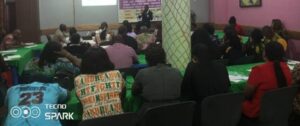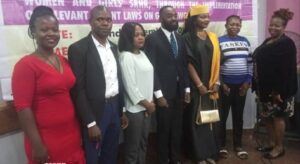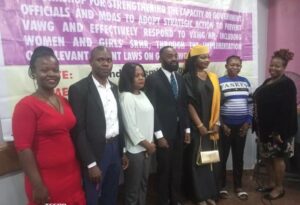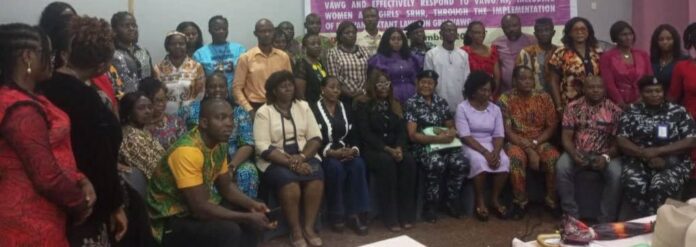The Anambra State House of Assembly has recommitted itself to advancing gender equality, justice, and social protection, with a renewed focus on preventing violence against women and girls (VAWG).
Angel Network News (ANN) reports that
the Speaker of the House, Mr Somtochukwu Udeze, made the pledge at a one-day workshop organized by Women Aid Collective (WACOL) in partnership with the Ford Foundation.
The workshop sought to strengthen the capacity of government ministries, departments, and agencies (MDAs) to adopt strategic actions against VAWG and harmful practices, while ensuring the implementation of existing laws on gender-based violence.
Represented by Mimi Ifeoma Azikiwe, member for Onitsha North I constituency, the Speaker commended WACOL for keeping the fight alive.
“Violence against women and girls remains one of the most pervasive yet under-addressed challenges in our society,” she said.
“It is not only a violation of human rights but a direct assault on our collective development and dignity. A society that fails to protect its women and girls cannot call itself just or progressive.”
She emphasized that the Assembly is committed not just to passing laws but ensuring their enforcement, monitoring, and accountability.
“As a woman and legislator, I know what it means for women’s voices to be silenced and their safety treated as optional,” she added.
“Today’s engagement is a call to conscience. We must move beyond rhetoric into practical strategies that protect women and girls every single day.”
Delivering an opening brief on behalf of WACOL’s founding director, Prof. Joy Ezeilo, Programme Manager Anuli Ezennia said the intervention is running across the five South-East states.
“Already, we have held it in Ebonyi and Enugu. After Anambra, we will move to Abia and Imo. Violence against women and girls deserves our collective fight.
“We must recommit ourselves and chart new strategies that align with today’s realities,” she said.
Ezennia reiterated WACOL’s vision of an egalitarian society where everyone’s aspirations are respected regardless of gender.
In a presentation on the implications of VAWG, legal practitioner Victor Obichukwu disclosed that globally, one in every three women experiences violence.
“VAWG is rooted in gender inequality, patriarchal structures, and discriminatory norms,” he said. “Although Anambra was one of the first states to domesticate the law against it, the state still records high prevalence.”
Obichukwu lamented that in many cases, women themselves reinforce patriarchy against other women. According to him, gender-based violence impedes progress on poverty reduction, HIV/AIDS response, and peace-building.
“Patriarchal norms legitimize violence to maintain male dominance. Over time, women internalize these norms, which increases their vulnerability,” he noted.
To address the scourge, he recommended quality education, robust media campaigns, and continuous training of professionals.
Another legal expert, Christian Okechukwu Ekweh, highlighted the gap between legal protections and cultural practices.
“Despite existing laws and international instruments, violence against women and girls remains a disturbing reality in our state,” he said.
“Women continue to face marginalization in families, offices, and across different sectors.”
Ekweh emphasized that violence is not only a legal issue but also a moral and cultural one.
“Every woman and child deserves to grow in a safe, dignified, and healthy environment,” he said.
“Traditional rulers, as custodians of culture, must play a pivotal role in rejecting harmful practices and promoting women- and child-friendly customs.
“They can also use community platforms to educate families on rights and protection.”
The workshop created space for participants to ask questions, share experiences, and seek clarifications.
It ended with a call for stronger collaboration among government agencies, traditional leaders, civil society, and development partners to build a safer environment for women and girls.




Among those in attendance were the Permanent Secretary of the Ministry of Women Affairs, Mrs. Chinwe Achugbu; her counterpart in the Ministry of Agriculture, Mrs. Ifeyinwa Uzoka; as well as representatives of the police, NSCDC, NAPTIP, civil society organizations, and the media.





